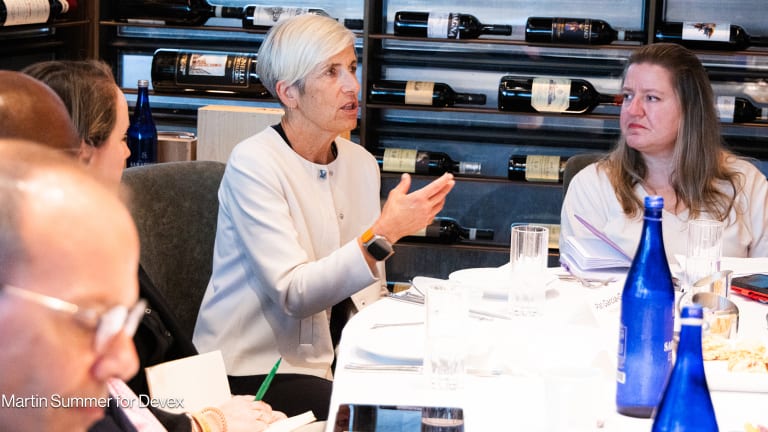As the Ebola virus in West Africa wanes, multilateral and bilateral donors along with NGOs and country governments are making a concerted push to strengthen health systems across the developing world to protect against future health crises.
But at what point does health systems strengthening become a good business investment for the private sector?
The U.K.-based pharmaceutical company GlaxoSmithKline PLC announced today that it will invest more than $9 million over the course of three years to support the training of more than 9,000 health workers in Ghana, Kenya and Nigeria.
Printing articles to share with others is a breach of our terms and conditions and copyright policy. Please use the sharing options on the left side of the article. Devex Pro members may share up to 10 articles per month using the Pro share tool ( ).








